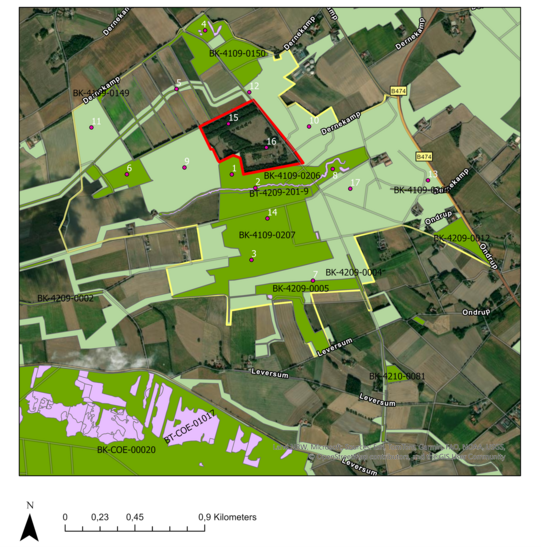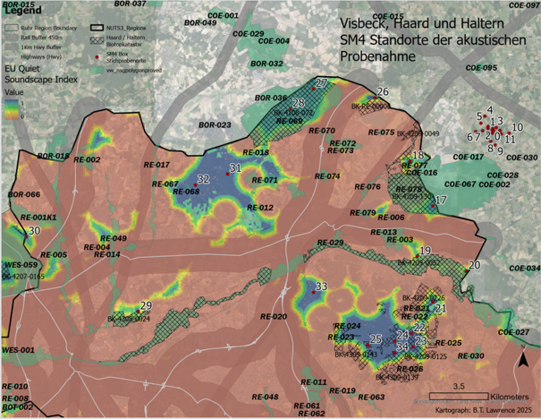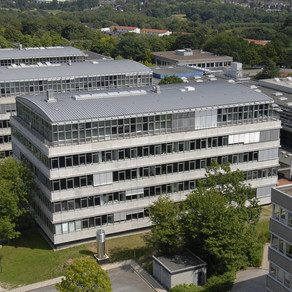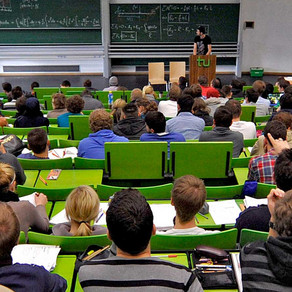Ecological change and the climate impact of the Visbeck special munitions depot for community didactic use
The project site (Fig. 1) will be used as a real-world laboratory to realize various research and learning objectives, primarily conducted by student assistants, facilitating hands-on, contextualized student learning. Research objectives include 1) understanding the historical, ecological, and acoustic setting of the site through the application of landscape planning methods, 2) analyzing existing historical-ecological values to support tactile-didactic open space planning, and 3) evaluating potential conflicts, opportunities, and climate impacts resulting from the development of the site into a community educational facility. The research questions we seek to answer include:
- What is the land use history of the site and how has this history changed the landscape functions of the site?
- What is the current ecological situation of the site, including soil, hydrology, flora and fauna, nature conservation?
- What contribution does the site make to human recreation or open space use, including the acoustic environment or connections to surrounding conservation areas?
- What are the site's challenges and opportunities for educational use and restoration?
- What are the potential climate impacts of converting the site into an educational learning space?

In the context of the ongoing DFG project within the LLP "The influence of green infrastructure on the acoustic environment" and to answer research questions 2 and 3, we are developing an acoustic dataset stratified by habitat type. Using automatic SM4 sound recorders, we are developing a longitudinal acoustic dataset in 17 habitat types in Visbeck, which will be compared with 17 similar reference habitat types in the regionally adjacent nature reserves Die Haard, Borkenberg and Haltern (Fig. 2). This comparative analysis is the basis for understanding bird species diversity and contribution to quiet areas in Visbeck and in comparison to our reference areas.

Project details:
Project duration: August 2024 bis Dezember 2025
Network partner: Volkshochschule Dülmen
Contact person: Dr. Ing. Bryce T. Lawrence (bryce.lawrence(at)tu-dortmund.de), TU Dortmund, Department of Spatial Planning, Landscape Ecology and Landscape Planning Research Group






